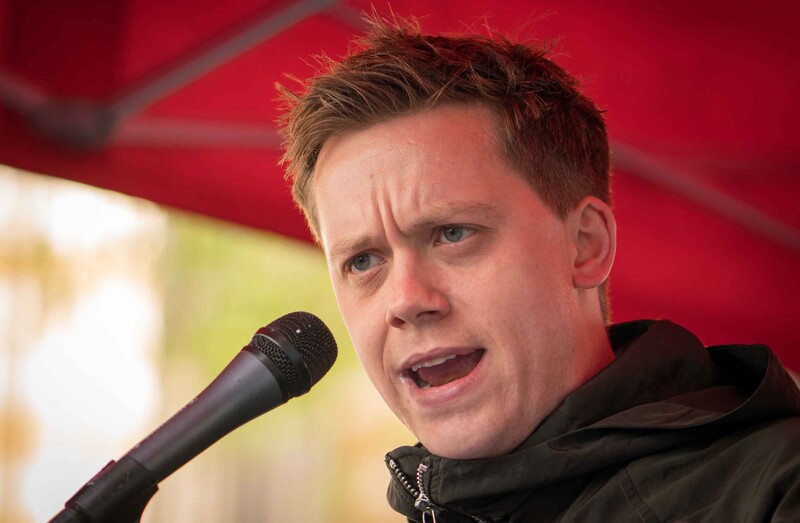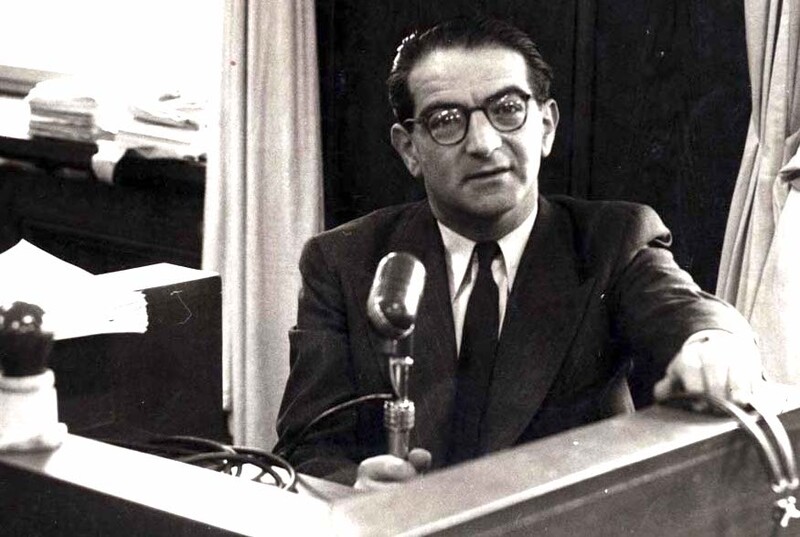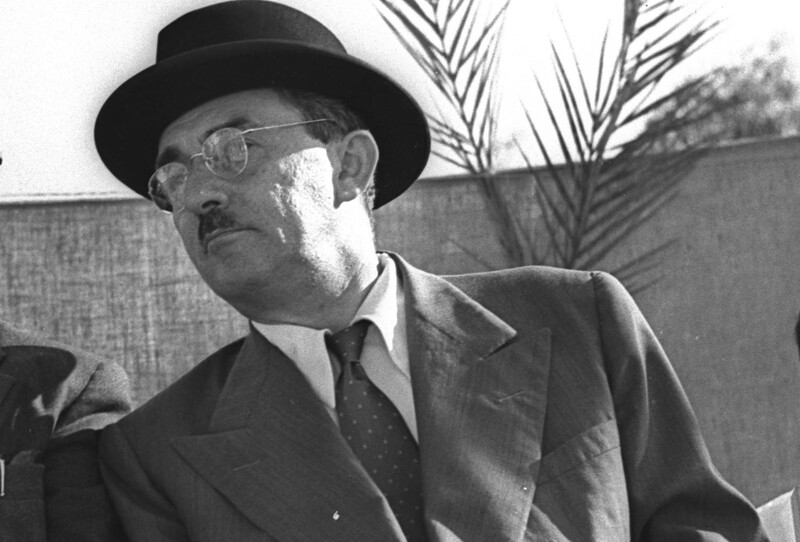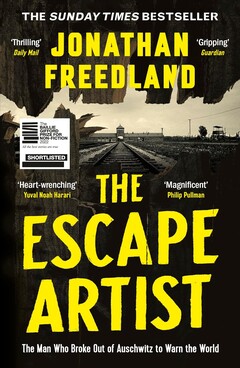The Electronic Intifada 3 September 2021

Owen Jones at a Palestine Solidarity Campaign demonstration in 2019. The Guardian columnist has played a double game.
Guardian columnist and YouTuber Owen Jones has apologized for a tweet supporting “Britain’s greatest living filmmaker” Ken Loach, who was expelled from the Labour Party last month.
Backtracking from his support, Jones tweeted last week that he wanted to “reflect” on “the justifiable distress” caused “to Jewish people” by a play Loach directed three decades ago.
I “therefore apologize for the tone of my tweet,” Jones wrote.
The 1987 production, called Perdition, was critical of the role the Zionist movement played during the Holocaust.
Zionism is Israel’s official racist and colonial ideology that is used to justify the expulsion of indigenous Palestinians and the seizure of their land.
As usual, Jones wants to have his cake and eat it.
He prefaced his condemnation of Loach with the claim that he did not support the Labour Party’s “action” against the director.
Loach’s television and cinema work, over more than six decades, has focused particularly on the lives of working-class people and has also included anti-war and anti-colonial themes.
The Palme d’Or winner is popular among the same left-wing audience that Jones relies on to buy his books and watch his videos.
A veteran British socialist, Loach has long been an advocate of Palestinian liberation.
Loach revealed his ejection from Labour on 14 August.
Loach’s expulsion is part of the McCarthyite purge of socialists and Palestine solidarity activists by right-wing party leader Keir Starmer and his acolytes.According to right-wing party news website LabourList, Loach was expelled due to his support for Labour Against the Witchhunt, one of several left-wing groups recently banned by the party.
This is all a continuation of the right-wing campaign that single-mindedly aimed to oust Jeremy Corbyn after the veteran left-wing lawmaker was elected party leader in 2015.
The witch hunt has targeted Corbyn supporters with disciplinary measures including suspensions and expulsions. They have often been wrongly accused of “anti-Semitism” – almost always a code word for supporting Palestinian rights.
Corbyn, who resigned as leader in 2019, was himself purged the following year.
Jones’ claim that he did not support the expulsion of Loach is belied by one of his tweets from July.
Jones tweeted that he agreed with a supposedly left-wing member of Labour’s National Executive Committee, who had just voted for the “auto-expulsion” of party members associated with banned left-wing groups, including Labour Against the Witchhunt.
Pro-Israel lobby group the Jewish Labour Movement told LabourList that it supported Loach’s expulsion.Chair Mike Katz responded that Starmer had “shown strong leadership in tackling anti-Semitism.”
Jones happily promoted Israel lobby talking points at a Jewish Labour Movement event in 2017.
Ahead of the national executive’s July vote banning the left-wing groups, LabourList reported that getting rid of Loach was one of the main motivations for including Labour Against the Witchhunt in the ban.
Loach is arguably the most high-profile supporter of the group.
So Jones’ claim not to support Loach’s expulsion when that was the inevitable and predictable result of the ban on Labour Against the Witchhunt – which Jones supported – is disingenuous or downright dishonest.
“Distressing to Jewish people”
Jones also implies that Loach is not a real socialist, tweeting: “Why would someone on the left want to make this play?”
But the play, Perdition, by late socialist scriptwriter Jim Allen, was loosely based on a real event – a fact Jones ignores.Jones claimed the play was “incredibly distressing to Jewish people.”
But what he really meant was that the play caused distress to supporters of Israel.
Ahead of its 1987 debut at the Royal Court Theatre in London, Perdition was attacked by the Israel lobby.
Later that year protests against a reading of the play were called by the Union of Jewish Students – a pro-Israel group which at least in recent years has been funded by the Israeli government.
A day before its opening, the play was canceled. Loach and Allen correctly blamed the Israel lobby and said they were being censored.
The play was eventually staged in 1999. Once more, the Union of Jewish Students protested.
“The charge of anti-Semitism is the time-honored way to deflect anti-Zionist arguments,” Loach said in a 2004 letter to The Guardian.
“Collaboration with the Nazis”
What was all the fuss about? In order to answer that, it is necessary to relate a well-documented, but little-known episode.
Perdition was based on the 1954 Gruenwald-Kasztner trial in Israel.
Malchiel Gruenwald – a refugee from Hungary who lost 50 relatives to the Nazi Holocaust – was sued for writing a pamphlet accusing Labor Zionist functionary Rezső Kasztner of “collaboration with the Nazis” back in their native country.
A press spokesperson for an Israeli ministry, Kasztner was a member of the ruling Mapai party, the forerunner of Israel’s present-day Labor Party.
Mapai leaders were hoping to get Kasztner into the Knesset, Israel’s parliament. He was a Mapai candidate for the first two Knesset elections, and initially for the third, before he was removed as an embarrassment.

Rezső Kasztner speaking on Israeli state radio. Kasztner’s cooperation with Nazi war criminals in his native Hungary caused a national scandal after his actions came under the microscope during a 1954 libel trial in Israel. (Wikimedia Commons)
Party leaders had a degree of loyalty to Kasztner, as he had been their man in Hungary during the war. If Kasztner was a collaborator, so were they, they reasoned. Gruenwald’s accusations could not be allowed to stand.
According to a 1950 Israeli law, if Kasztner was a Nazi collaborator, he could even have faced the death penalty. The government resolved to sue Gruenwald for libel. They would come to regret it.
After months of hearings, the court found Gruenwald had not defamed Kasztner and decided that the Mapai man had indeed collaborated. Kasztner had “sold his soul to the devil,” the judge famously ruled.
Worse still for the Labor Zionists, the hearings became a trial of Kasztner in the court of public opinion – and by extension a trial of them. The affair still resonates in Israel decades later.
The trial exposed a gruesome history of Nazi-Zionist cooperation which Israeli leaders would have preferred remain buried.
Deadly lies
After the March 1944 German invasion of Hungary, Kasztner, a local member of the Zionist leadership, worked directly with the Nazis.
He agreed to help maintain calm in the Hungarian Jewish community, particularly the 20,000 Jews of Kasztner’s native town of Kluj. The Nazis wanted to ensure there was no repeat of the Warsaw Ghetto uprising in Poland the year prior.
The Jews of Kluj were concentrated in a ghetto prior to deportation, and were told a tale about “Kenyermeze,” a work camp in a German-occupied area where they would supposedly be sent and kept alive.
But this was a deadly lie: The trains were actually taking people to Auschwitz, the death camp in occupied Poland, where the Nazis murdered 12,000 Hungarian Jews per day.
Almost half a million Hungarian Jews were ultimately exterminated.
To ensure there was no rebellion, Kasztner’s men told the Jewish community that they would be safe. Fake postcards and letters from “Kenyermeze” were distributed or read by his group assuring the Jews in Kluj that all was well. Thinking they were being deported to labor camps, Jews in Hungary mostly did not resist.
As Ben Hecht writes in Perfidy, his 1961 book on the affair, the Jews of Kluj were guarded in their ghetto by fewer than two dozen Nazi and Hungarian guards. They could have easily overcome them and escaped to safety across the Romanian border, just three miles away, had Kasztner told them what fate he knew really awaited them.
But Kasztner had personally negotiated a deal with senior Hitler aide and Holocaust architect Adolf Eichmann. Kasztner knew where the “resettlement” trains were actually headed, but remained silent.
“A success for Zionism”
In exchange for deceiving his community, the Nazis agreed to let Kasztner select a group – mostly fellow Zionists, friends and family – who would be permitted to escape Hungary on a train to Switzerland. The idea was that the elite group would join the Zionist settler-colony in Palestine.
Zionists and Nazis both agreed on the goal of removing European Jews from Europe.
Eichmann was captured in Argentina in 1960 by Mossad agents and brought back to Israel, where he would be tried and executed in 1962.
Speaking to a pro-Nazi Dutch journalist, while still at large in 1955, Eichmann himself fondly recalled working with Kasztner. He described the Nazi-Zionist meeting of minds in chillingly frank terms.
According to Eichmann, Kasztner’s main concern was to make it possible for a select group of Hungarian Jews to go to Palestine.
“You can have the others,” Eichmann recalled Kasztner saying, “but let me have this group here.”
The Nazi also asserted that “there was a very strong similarity between our attitudes in the SS and the viewpoint of these immensely idealistic Zionist leaders.”
“I believe that Kasztner would have sacrificed a thousand or a hundred thousand of his blood to achieve his political goal,” Eichmann said. “He was not interested in old Jews or those who had become assimilated into Hungarian society. But he was incredibly persistent in trying to save biologically valuable Jewish blood – that is, human material that was capable of reproduction and hard work.”
“Because Kasztner rendered us a great service by helping keep the deportation camps peaceful, I would let his group escape,” Eichmann explained.
Judge Benjamin Halevy took nine months to write his ruling, concluding on 21 June 1955 that “the Nazis’ patronage of Kasztner, and their agreement to let him save six hundred prominent Jews, were part of the plan to exterminate the Jews.”
He said that Kasztner “considered the rescue of the most important Jews as a great personal success and a success for Zionism.”
“How could the judge dare!”
The Israeli press extensively covered the story and the affair dominated the 1955 Knesset elections. The government immediately appealed to the high court. There were calls in the Knesset and press to have Kasztner tried under the Nazi collaborators law.
“A nightmare, a horror,” Prime Minister Moshe Sharett wrote in his diary. “How could the judge dare!”
Kasztner had become a liability. He was leaking inconvenient facts like a damaged bucket.

Israel’s second prime minister Moshe Sharett, who called the verdict “a nightmare.” (Wikimedia Commons)
If the appeal had not gone the government’s way, calls to try Kasztner as a Nazi collaborator would have been much harder to resist.
But before he could take the stand again, Kasztner was silenced forever.
In March 1957, he was assassinated outside his home. The three killers were already known to the Shin Bet, Israel’s secret police, and immediately arrested. One of them, Zeev Eckstein, confessed to having been a Shin Bet agent prior to the killing.
During and after the Gruenwald trial, Kasztner was given police protection. Shortly before his assassination, this was lifted. There were allegations that the Israeli security establishment had made a decision to murder Kasztner to shut him up.
The killers were sentenced to life in prison – yet only five years later they were released. Israel’s first prime minister, David Ben-Gurion, had personally intervened to help secure their freedom.
The high court overturned most of the libel trial verdict. The judges did not dispute the facts that emerged in the trial about what Kasztner had done, but only Judge Halevy’s legal interpretation of what they amounted to. In some instances the judges even justified his actions.
What did Kasztner have left to tell? It’s likely that some secrets died with him.
Notably, his collaboration with Nazi war criminals did not end with the war.
After the Holocaust he traveled to Germany and testified at Nuremberg in defense of several Nazis involved in the extermination of Jews, such as SS officer Kurt Becher. As a result, Becher escaped the noose and eventually became one of West Germany’s richest industrialists.
Kasztner had originally been brought to Nuremberg to testify against Nazi war criminals, as detailed in Akiva Orr’s 1994 book Israel: Politics, Myths and Identity Crises.
But according to one American prosecutor, “Kasztner roamed the Nazi prison camp for Nazi officers searching for those he could help by testimony or intervention on their behalf. In the end we were very glad when he left.”
Jones’ double game
While Kasztner’s behavior may have been particularly egregious, it came within the context of broader Zionist-Nazi cooperation, as both movements shared the goal of removing Jews from Europe.
Kasztner’s affidavit to the Nuremberg tribunal on behalf of the Nazi Kurt Becher stated that it was given “not only in my name, but also on behalf of the Jewish Agency and the Jewish World Congress” – two of the leading bodies of the Zionist movement at the time.
In the appeal of the Gruenwald verdict, Israel’s attorney general admitted as much.
“Kasztner did nothing more and nothing less than was done by us,” he stated. “It has always been our Zionist tradition to select the few out of the many in arranging the immigration to Palestine.”
What do we learn from all this?
Owen Jones is often referred to on the British left as a weather vane because he changes his positions so often.
In 2015 when Jeremy Corbyn was popular, Jones supported his leadership.
But at the first test in 2016, when there was an attempted coup by Labour MPs and the Israel lobby, Jones turned against him, writing that he was in “despair” about Labour under Corbyn.
Soon before the June 2017 election, Jones went further and explicitly called for Corbyn to quit.
After Corbyn’s Labour came within a few thousand votes of winning that election, depriving the ruling Conservative Party of its majority and ultimately forcing Prime Minister Theresa May to step down, Jones flip-flopped once again, writing that he had made a mistake.
Unchastened, Jones has played a similar double game ever since. He has long fueled the Labour witch hunt over “anti-Semitism,” endorsing calls for socialists like Chris Williamson, Jackie Walker and this author to be suspended or expelled.
Now, with Loach expelled, Jones again wants it both ways. He wants to claim he doesn’t support expulsion, but at the same time he unjustly condemns Loach’s work as “incredibly distressing to Jewish people” – and thus implies there’s merit to the expulsion.
Owen Jones is no true friend to socialists or Palestinians.
Sources
- Lenni Brenner, Zionism in the Age of the Dictators (Atlanta: On Our Own Authority, 2014), pages 284-291
- Ben Hecht, Perfidy (New York: Julian Messner, Inc., 1961)
- Akiva Orr, Israel: Politics, Myths and Identity Crises (London: Pluto Press, 1994), pages 81-116
- Tom Segev, The Seventh Million (New York: Hill and Wang, 1993), pages 255-296, 305-310
Asa Winstanley is an investigative journalist and associate editor with The Electronic Intifada.






Comments
Eichmann
Permalink Mike Parr replied on
In the late 1930s a group of Nazis led by Eichmann went to Palestine to discuss with Zionists how "an accomodation could be reached" to boost emigration of Jews from Germany to Palestine. In Autumn 1940, Avram Stern sent a message to German diplomats in Beiruit offering for Zionists to actively take part in the war on the German side (with the aim of the foundation of a Jewish state). All this a matter of historical record. Thus the Zionists at that time seemed to be willing to talk to the Nazis & even cut a deal with them - as the article showed.
It's long past time for the
Permalink principia replied on
It's long past time for the left to stand up to Zionism. I'm glad that there are still those with spines who can, but we need many more.
Anti-Semitism in the Labour Party.
Permalink Peter Reilly replied on
Owen Jones, please view this video by Miko Peled, whose father was a General in the Israeli army, and whose grandfather was a signatory to Israel's Declaration of Independence, then justify your views on anti-Semitism in the Labour Party: https://m.facebook.com/story.p...
Censorship
Permalink Frank Dallas replied on
Whether or not the play Perdition is distressing to Jewish people, or perhaps to German people, or maybe to democrats, the question is should works of art be banned because they cause distress? Regimes which brook no dissent will shut ban books, plays, exhibitions, concerts. What happens is the shrinking of culture and the imposition of a single view. Ideology always drives in this direction. Art and free expression in general must pull against it. That people may be distressed by Perdition is no argument against it being produced. People may be distressed by Gulliver's Travels which offers a dark view of humanity. Interestingly, those who are loud in their opposition to Allen's play have no objection to T.S.Eliot, a known anti-Semite, nor to his friend Ezra Pound who broadcast on behalf of Mussolini. G.K. Chesterton too was a Mussolini fan but there has been no call from the CST for Father Brown to be banned. The outrage is directed at Loach and Allen because they belong to the Left and call for political freedom for the Palestinians. Nazi-Zionist collaboration is a matter of uncontroversial record. What is objected to is the revelation of Zionist double-dealing and the support for universal values. The Zionists are racists. What troubles them is opposition to their supremacist doctrine. Jones lacks intellectual independence. He has always been too willing to follow a line. There is an old joke about a CP member discussing with comrades in a bar. He goes to the toilet. When he gets back the Party line has changed. That's why Jones is for Palestinian rights on Monday and for the banning of plays on Tuesday. Intellectual and moral honesty and courage are necessary. Without them we collapse into the kind of moral sludge in which the Zionists wallow. Perdition is a good play. Well structured and well written. Everyone should read it. It assists the truth. Zionism is a lying doctrine like the Nazism it collaborated with.
My Namesake
Permalink Owen Jones replied on
I can't believe how far this man will go to get attention... :-(
He'll end up joining the Tories.